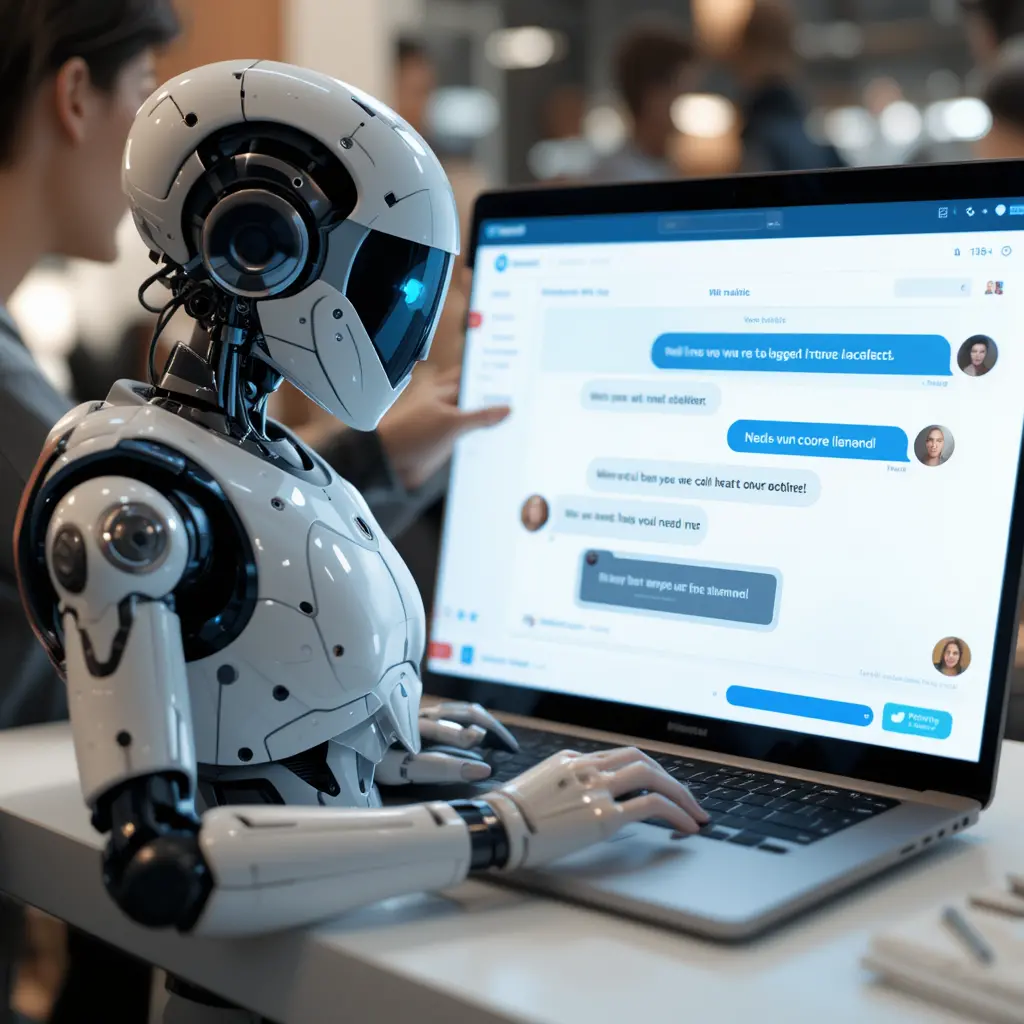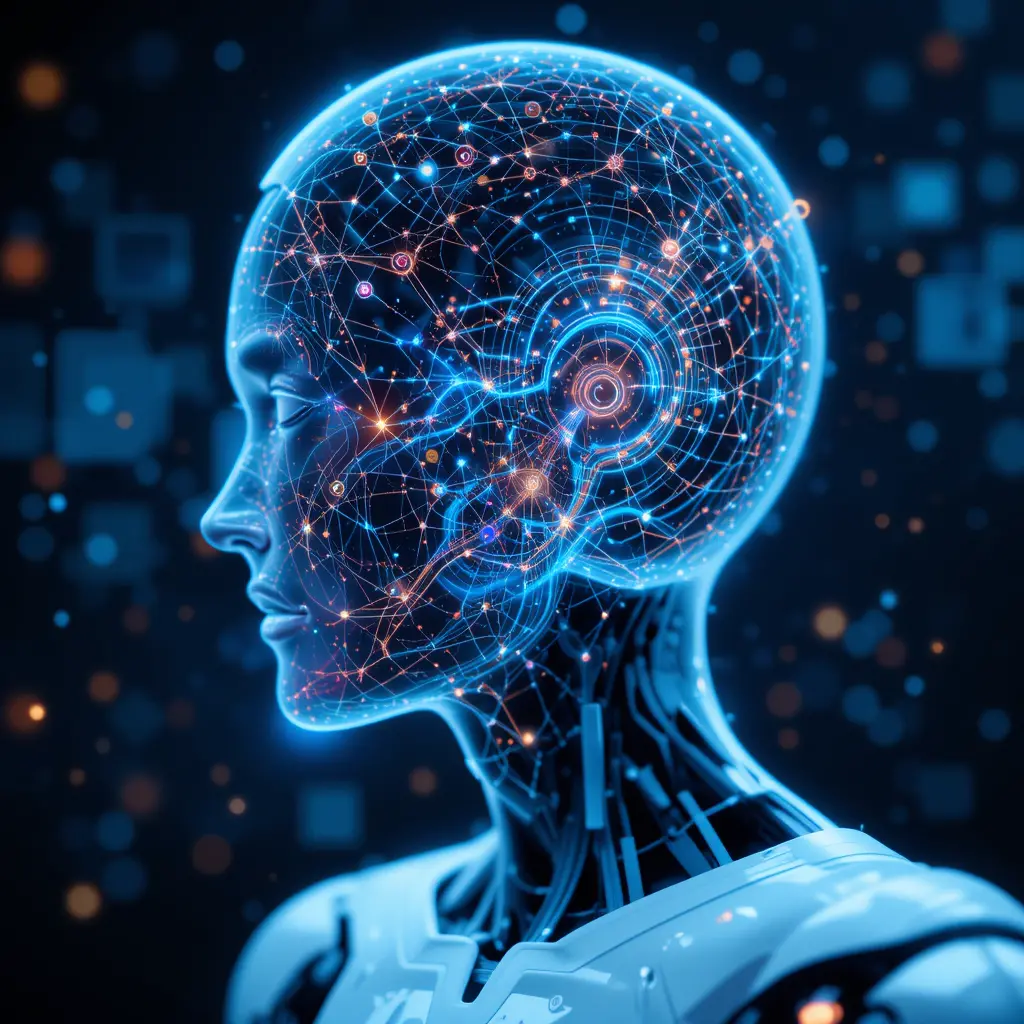Imagine a world where customer service is available 24/7, providing instant responses and personalized interactions. AI chatbots are making this a reality in the marketing sector. These intelligent tools are transforming how businesses engage with customers, offering efficient and consistent support. By automating routine inquiries, chatbots free up human agents to handle more complex issues. This shift not only enhances customer satisfaction but also boosts operational efficiency. As AI technology continues to evolve, its impact on customer service in marketing becomes increasingly significant.
The Rise of AI Chatbots in Marketing
AI chatbots are transforming the landscape of customer service in marketing. These digital assistants are not just tools; they are becoming integral to how businesses interact with customers. As a Customer Service Specialist, I’ve seen firsthand how these chatbots can enhance customer experiences.
The Evolution of AI Chatbots
AI chatbots have come a long way from their early days. Initially, they were simple programs that could only handle basic queries. Now, they are sophisticated systems capable of understanding complex customer needs. For instance, I remember a time when a chatbot helped a customer find the perfect product by asking a series of personalized questions. This level of interaction was once unimaginable.
In marketing, AI chatbots are invaluable. They provide instant responses, which is crucial in today’s fast-paced world. Customers expect quick answers, and chatbots deliver just that. I believe that this immediacy is one of the reasons why businesses are increasingly relying on them. Moreover, chatbots can handle multiple inquiries simultaneously, something that would be challenging for human agents.
From my experience, the integration of AI chatbots in customer service has not only improved efficiency but also customer satisfaction. They offer a seamless experience, guiding users through their journey with ease. It’s fascinating to see how these chatbots are changing the dynamics of customer service in marketing, making it more interactive and engaging.
Enhancing Customer Experience with AI Chatbots
In today’s fast-paced world, enhancing the customer experience is crucial for businesses. As a Customer Service Specialist, I’ve seen firsthand how AI chatbots are changing customer service in marketing. These digital assistants are not just tools; they are transforming how companies interact with their clients.
Personalized Interactions
AI chatbots offer personalized interactions that make customers feel valued. Imagine walking into your favorite coffee shop, and the barista knows your order by heart. That’s the kind of experience chatbots aim to replicate online. They remember past interactions and preferences, providing a tailored service that enhances the customer experience. In my opinion, this level of personalization is a game-changer.
Once, I had a customer who was frustrated with a product issue. The AI chatbot quickly identified the problem and offered a solution based on previous interactions. The customer was impressed and felt heard, which turned a negative experience into a positive one. This is the power of AI chatbots in action.
Efficiency and Availability
Another significant advantage of AI chatbots is their efficiency and availability. They work 24/7, ensuring that customers receive assistance whenever they need it. This constant availability is like having a dedicated team member who never sleeps. It reduces wait times and improves satisfaction, which is essential in today’s competitive market.
In conclusion, AI chatbots are not just a trend; they are a vital part of modern customer service strategies. By enhancing the customer experience through personalized interactions and constant availability, they are indeed revolutionizing how businesses operate. As someone who has worked in customer service for years, I can confidently say that embracing this technology is a step in the right direction.
Cost Efficiency and Operational Benefits
In the fast-paced world of marketing, businesses constantly seek ways to improve efficiency and reduce costs. One of the most significant advancements in recent years is the integration of AI chatbots. These digital assistants are not just transforming customer service; they are reshaping the entire marketing landscape.
Cost Efficiency
AI chatbots offer remarkable cost efficiency by automating routine tasks. Imagine a small business owner who used to spend hours answering customer queries. With a chatbot, those hours are now free for strategic planning. This shift not only saves money but also enhances productivity. From my experience as a Customer Service Specialist, I’ve seen companies cut their customer service costs by up to 30% after implementing chatbots. It’s like having a tireless employee who never takes a break.
Operational Benefits
The operational benefits of AI chatbots extend beyond cost savings. They provide 24/7 support, ensuring customers receive assistance whenever they need it. I recall a client who shared how their chatbot handled a surge of inquiries during a product launch, maintaining customer satisfaction without overwhelming the human team. This seamless integration of technology into customer service is a game-changer. In my opinion, the ability to handle high volumes of interactions efficiently is invaluable. As AI chatbots continue to evolve, their role in marketing will only grow, offering even more innovative solutions.
Challenges and Considerations in Implementing AI Chatbots
Implementing AI chatbots in customer service is like introducing a new team member who never sleeps. They promise efficiency and consistency, but they also bring their own set of challenges. As a Customer Service Specialist, I’ve seen firsthand how these digital assistants can transform interactions, yet they require careful consideration.
Understanding the Challenges
One major challenge is ensuring that AI chatbots understand the nuances of human language. Imagine trying to teach a robot the difference between “I need help” and “I need help now!” The urgency in the latter can be lost if the chatbot isn’t properly trained. This is where the real-world application gets tricky. I’ve witnessed situations where a customer, frustrated by a bot’s inability to grasp context, simply gave up. It’s crucial to continuously refine these systems to better interpret and respond to varied customer inputs.
Another consideration is the integration with existing systems. AI chatbots must seamlessly connect with databases and CRM tools. This integration can be as complex as fitting a new engine into an old car. If not done correctly, it can lead to data silos and inefficiencies. In my experience, companies often underestimate the time and resources needed for this process, leading to delays and frustration.
Balancing Automation and Human Touch
While AI chatbots are changing customer service in marketing, they should not replace the human touch entirely. Customers still value personal interaction, especially when dealing with complex issues. I remember a case where a customer, after several failed attempts with a bot, expressed relief when finally connected to a human agent. This highlights the importance of having a smooth transition from bot to human when necessary.
In conclusion, while AI chatbots offer significant benefits, they require thoughtful implementation. Balancing technology with human empathy is key to successful customer service. As we continue to integrate these tools, we must remain vigilant to ensure they enhance rather than hinder the customer experience.
Future Trends in AI Chatbots for Marketing
As we look ahead, the role of AI chatbots in marketing is set to expand in exciting ways. These digital assistants are not just tools; they are becoming integral to how businesses interact with customers. From my experience as a Customer Service Specialist, I see AI chatbots evolving to offer even more personalized and efficient service.
Personalization and Emotional Intelligence
One of the most promising future trends is the enhancement of personalization. Imagine a chatbot that remembers your preferences, like a friendly barista who knows your coffee order by heart. This level of service is becoming a reality. AI chatbots are learning to understand not just words, but the emotions behind them. This means they can respond with empathy, making interactions feel more human.
Integration with Other Technologies
Another trend is the integration of AI chatbots with other technologies. Picture a chatbot that can seamlessly connect with your smart home devices or your car’s navigation system. This integration can create a more cohesive customer experience. In my opinion, this is where the magic happens. When technology works together, it feels like a symphony, each part playing its role to create something beautiful.
In conclusion, the way AI chatbots are changing customer service in marketing is just the beginning. As these technologies continue to evolve, they will undoubtedly become even more indispensable in our daily lives. I am excited to see how these trends unfold and how they will shape the future of customer service.
Conclusion
As we wrap up our exploration of How AI Chatbots Are Revolutionizing Customer Service in Marketing, it’s clear that these digital assistants are more than just a trend. They are reshaping how businesses interact with their customers, offering a blend of efficiency and personalization that was once unimaginable.
The Human Touch in a Digital World
AI chatbots, in many ways, remind me of a friendly barista who remembers your coffee order. They provide that personal touch, even in a digital space. For instance, a chatbot can greet you by name and suggest products based on your past purchases. This level of service makes customers feel valued and understood. As a Customer Service Specialist, I’ve seen firsthand how this can transform a customer’s experience from mundane to memorable.
Real-World Impact
Consider a small online retailer that implemented AI chatbots to handle customer inquiries. Before, they struggled with response times and customer satisfaction. After integrating chatbots, they noticed a significant improvement in both areas. Customers received instant responses, and the team could focus on more complex issues. This example highlights how AI chatbots are changing customer service in marketing by allowing businesses to operate more efficiently while maintaining a personal connection with their customers.
In conclusion, while AI chatbots are not without their challenges, their potential to enhance customer service is undeniable. They offer a unique blend of technology and human-like interaction that can elevate the customer experience. As we continue to embrace these innovations, I believe we will see even more creative applications that will further revolutionize the industry.






